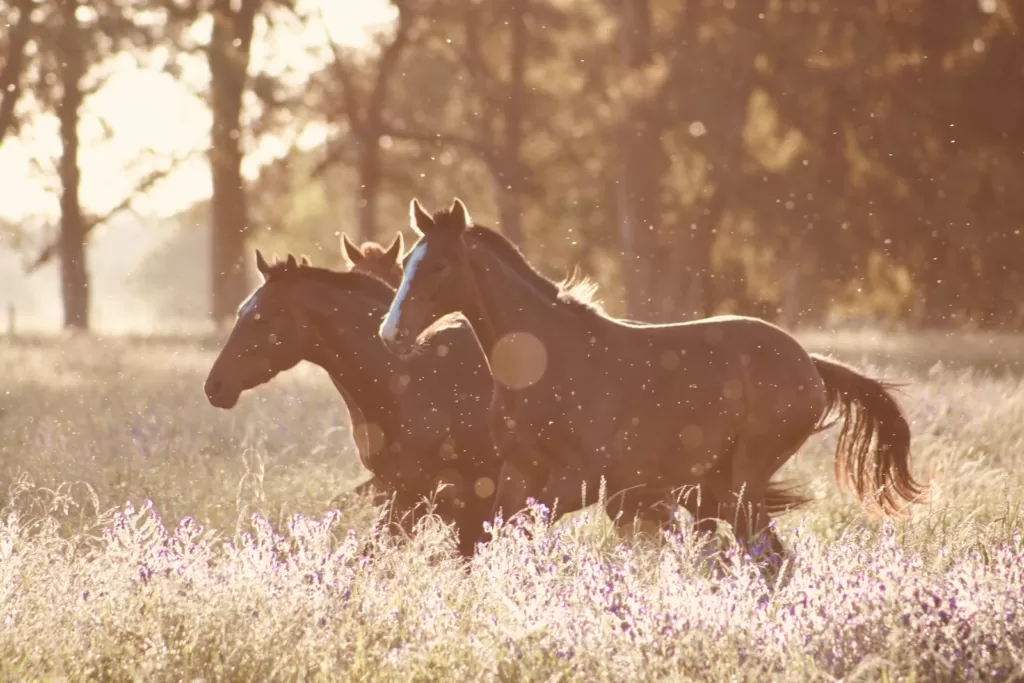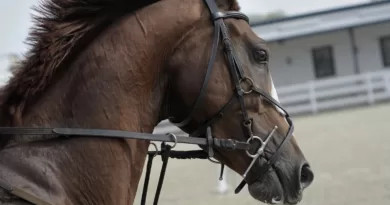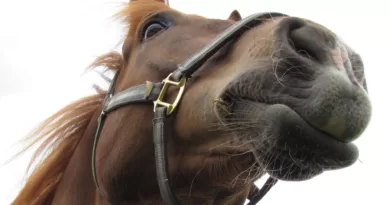Horse Lifespan by Breed: A Comprehensive Guide
Introduction
Horse Lifespan by Breed: Horses, these magnificent creatures, have played diverse roles in human history, from transportation to sport and companionship. The average lifespan of a horse depends on numerous factors, including genetics, care, and breed. In this article, we will provide insights into these factors and explore the typical lifespans of some popular horse breeds.
Factors Affecting Horse Lifespan
Several factors influence how long a horse can live. To ensure the best possible longevity for your equine friend, consider the following:
1. Genetics
Genetics plays a significant role in determining a horse’s lifespan. Different breeds have varying predispositions to certain health issues. For example, some breeds are more susceptible to arthritis, while others may have a genetic predisposition to certain diseases.
2. Nutrition and Care
Proper nutrition and attentive care are essential for your horse’s health and longevity. A balanced diet, regular exercise, and grooming routines contribute to a longer, healthier life.
3. Environment
The environment in which a horse is raised can impact its lifespan. Horses living in clean, well-maintained stables tend to have fewer health issues compared to those in subpar conditions -Horse Lifespan by Breed.
4. Veterinary Care
Regular veterinary check-ups and vaccinations are crucial for a horse’s wellbeing. Early detection and treatment of health issues can extend a horse’s life.
Breeds and Their Lifespans
Now, let’s explore the typical lifespans of some popular horse breeds, each with its unique characteristics and traits.
3.1. Arabian
Arabian horses are renowned for their beauty and endurance. They often live for approximately 25 to 30 years, making them one of the longer-lived breeds. Their genetics and careful breeding contribute to their impressive lifespan.
3.2. Thoroughbred
Thoroughbreds are well-known in the racing world. These high-spirited horses usually have a lifespan of 25 to 30 years. However, the demands of their racing careers can impact their longevity.
3.3. American Quarter Horse
The American Quarter Horse, a versatile and popular breed, typically enjoys a lifespan of 25 to 30 years. Their easygoing nature and sturdy build contribute to their long life.
3.4. Morgan
Morgan horses are admired for their strength and versatility. With proper care, they can live for 30 to 35 years. Their good health and sound genetics contribute to their impressive lifespan.
3.5. Shetland Pony
Shetland Ponies, known for their small stature, have a lifespan of 20 to 25 years. Despite their size, they are hardy and often lead long and healthy lives.
FAQs About Horse Lifespan
Let’s address some common questions regarding horse lifespan:
Q1: What is the average lifespan of a horse?
A1: The average lifespan of a horse ranges from 25 to 30 years, but this can vary based on breed and care.
Q2: How can I ensure my horse lives a long and healthy life?
A2: Providing proper nutrition, regular exercise, veterinary care, and a clean environment are essential for maximizing your horse’s lifespan.
Q3: Are there any specific health issues to watch out for in certain breeds?
A3: Yes, some breeds are predisposed to specific health issues. Regular check-ups and a healthy lifestyle can help mitigate these risks.
Q4: Can I extend my horse’s lifespan through proper care?
A4: Yes, providing your horse with the right care, including a balanced diet, regular exercise, grooming, and veterinary check-ups, can significantly extend their lifespan.
Q5: Are there any specific nutritional requirements for different horse breeds?
A5: Yes, different breeds may have varying nutritional needs. It’s essential to consult with an equine nutritionist to create a diet plan tailored to your horse’s breed and age.
Q6: What are the common signs of illness in horses?
A6: Common signs of illness in horses include changes in behavior, appetite, or physical condition, as well as lameness, colic, and respiratory issues. Regular veterinary check-ups can help detect these early.
Breeds and Their Lifespans
3.6. Appaloosa
Appaloosa horses are known for their distinctive coat patterns. With proper care, they can live for 25 to 30 years. Their sturdy build and adaptability contribute to their longevity.
3.7. Clydesdale
Clydesdales, famous for their massive size and strength, typically have a lifespan of 20 to 25 years. Despite their size, they are known for their gentle nature and can lead healthy lives with the right care.
3.8. Paint Horse
Paint Horses, prized for their striking coat patterns, often live for 25 to 30 years. Their versatility in various equestrian disciplines makes them a popular choice among horse enthusiasts.
3.9. Andalusian
Andalusian horses are celebrated for their elegance and grace. These horses usually have a lifespan of 25 to 30 years, and their good health is a testament to their careful breeding.
3.10. Mustang
Mustangs, known for their wild and free-spirited nature, can live for 25 to 30 years when domesticated. However, their lifespan in the wild may vary due to environmental challenges.
Ensuring Your Horse’s Longevity
To extend your horse’s lifespan and ensure they have a happy and healthy life, consider the following:
1. Regular Exercise
Horses need regular exercise to maintain both their physical and mental health. Moreover, providing them with opportunities to graze, run, and engage in equestrian activities will not only help them stay fit and happy but also strengthen the bond between you and your equine companion.
2. Balanced Diet
A nutritious diet is essential for your horse’s overall wellbeing. Consult with a veterinarian or equine nutritionist to create a diet plan tailored to your horse’s specific needs.
3. Grooming
Regular grooming not only keeps your horse clean and comfortable but also allows you to detect any health issues early. It’s a bonding experience that benefits both you and your horse.
4. Veterinary Care
Scheduled veterinary check-ups and vaccinations are vital. Early detection and treatment of diseases and injuries can significantly impact your horse’s lifespan.
5. Mental Stimulation
Horses are intelligent creatures. Provide them with mental stimulation through toys, social interactions, and varied environments to keep them engaged and content.
See Also: How long do horses live? Amazing Facts About Horses’ Life
Proper Shelter and Pasture Management
Providing your horse with a suitable living environment is essential for their wellbeing. Here are some key considerations:
1. Shelter
Horses need protection from harsh weather conditions. To provide adequate shelter, a well-constructed stable or shelter can shield them from extreme heat, cold, and wet weather. Additionally, make sure the shelter is well-ventilated and free from drafts.
2. Pasture Management
Horses require access to pasture for grazing. Additionally, proper pasture management involves regular mowing to maintain the grass at an optimal length. Furthermore, it includes the removal of toxic plants from the grazing area. Moreover, rotational grazing is essential to prevent overgrazing and soil erosion. Lastly, always ensure that clean, fresh water is readily available to meet their hydration needs.
3. Cleanliness
Maintaining a clean living environment is crucial for preventing diseases and ensuring your horse’s comfort. Regularly clean stalls and remove manure from paddocks to minimize health risks.
Dental Care
Proper dental care is essential for a horse’s overall health. Horses have continuously growing teeth that can develop sharp points and hooks, causing discomfort and difficulty in eating. Regular dental check-ups and floating (smoothing) of the teeth can prevent these issues and ensure your horse can chew their food properly.
Parasite Control
Internal and external parasites can harm your horse’s health. Implement a regular deworming schedule recommended by your veterinarian. Additionally, use fly repellents and maintain a clean environment to minimize the risk of external parasites.
Regular Hoof Care
Ensuring your horse’s mobility and comfort is a top priority in equine care. Therefore, regular hoof trimming and, if necessary, shoeing, should be integral to your horse’s maintenance routine. By doing so, you not only enhance your horse’s overall well-being but also effectively prevent lameness and related issues.
Weight Management
Horses, much like humans, can suffer from obesity or malnutrition. Consequently, proper weight management is essential, which entails feeding a balanced diet and monitoring your horse’s body condition regularly. Moreover, it’s advisable to consult with a veterinarian or equine nutritionist to develop a customized diet plan tailored to your horse’s specific needs.
Mental Stimulation
Horses are intelligent and social animals. Interaction with other horses, as well as human companionship, is essential for their mental wellbeing. Provide toys, engage in training, and vary their environment to keep them mentally stimulated and content.
Conclusion
Caring for a horse is a significant responsibility that involves attention to various aspects. First and foremost, from nutrition and health to their living environment. Additionally, by providing proper care and attention to these areas, you can significantly impact your horse’s lifespan. Consequently, ensuring they lead a long and fulfilling life.
Enjoyed this article? You May Also Like:
- Learn in 5 minutes about Cryotherapy for Horses
- Penicillin in Horses; Impeccable Guide in 10 minutes
- Excede Antibiotic For Horses, Fantastic Facts in 5 minutes
- The Science of Oxytocin in Horses: How This Hormone Influences Equine Behavior
- Can Horses Swim? Everything You Need To Know About Horse Swimming






